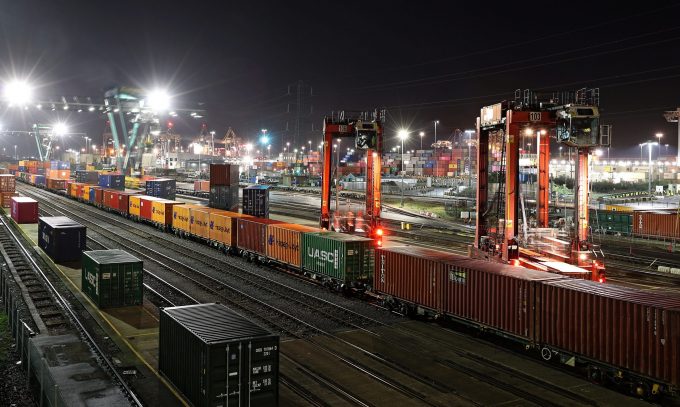UK stowaway rule risks collapsing haulage sector
Stakeholders are calling on the government to change migration rules that have caused a “significant” rise in ...

DP World has raised the incentive for UK importers using its Southampton terminal to switch their inland transport from road to rail, to a £100 per container.
The operator launched its Modal Shift Programme (MSP) in September on imports unloaded in Southampton with an incentive of £70 for each box transferred to a rail head within 140 miles of the port, rather than leaving the terminal by truck.
It said that since the MSP was launched, the proportion of boxes leaving Southampton by rail had increased from 21% to 27%, and DP World claimed the programme had the potential to eliminate 30,000 tonnes of CO2 emissions a year.
John Trenchard, UK commercial & supply chain director at DP World, said: “The increase in incentive will provide our customers with a welcome boost to their financial and sustainability ambitions and this is particularly important at a time when the pressure to manage costs, maintain reliability and improve speed has never been greater for our customers.
“The programme is also a testament to our growing cooperation with the market, as we continue to seek to provide customers with lower carbon choices and encourage modal shift for supply chains using our UK logistics hubs.
“To put that in perspective, our investment in British rail alone via our two UK hubs is taking approximately 300,000 trucks off the road each year,” Mr Trenchard added.
The decision by DP World to increase its modal shift incentive follows a December launch of the Department for Transport’s (DfT) Plan for Rail, which included a commitment to increase the volumes of freight carried on the UK rail network by 75% by 2050.
The Loadstar understands that DP World’s MSP is funded by the company itself and separate from the DfT’s Modal Shift Revenue Support Scheme (MSRS), which since 2010 has assisted “companies with the operating costs associated with running rail or inland water freight transport instead of road where rail or inland waterway transport is more expensive and less polluting”.
According to DfT figures, £16.5m – representing around 90% of total MSRS expenditure – in grants were awarded to container supply chains during 2022/23, which removed “900,000 lorry journeys from Britain’s roads, saving almost 40,000 tonnes of carbon dioxide (CO2) emissions”, during the period.
However, the DfT has called for evidence from MSRS users in a study to determine whether the scheme should continue, if it needs amendments, or whether it should be discontinued.
Companies wishing to give evidence have until 4 February.
Comment on this article